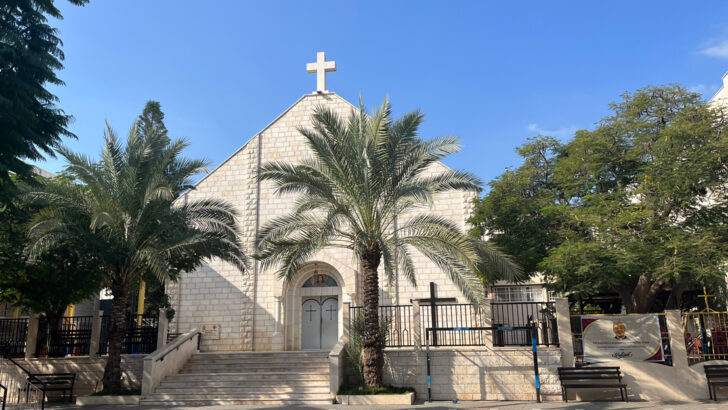The Vanishing: The Twilight of Christianity in the Middle East, by Janine di Giovanni (Bloomsbury, £10.99 /€12.99)
The author of this most moving book, now a senior Fellow and professor at Yale’s Jackson Institute for Global Affairs, has been described “as one our generation’s finest correspondents”. This book alone illustrates her skill, insight and compassion.
According to Salman Rushdie the book is “A tragic portrait of a disappearing world, created with passion and literary grace”.
The countries of this wide region are often call “Muslim countries”, but this is to quite obscure for those whose notion of Christianity as a ‘European’ religion is too strong, that Christianity arose and spread and for centuries flourished in this is region, that historically speaking if one takes a long enough view they are the original Christian countries.
Hence efforts to remove all traces of Christianity in these regions, in which it was (as the classical Greeks would have said) “earth born”, and not the result of missionary work by colonial powers.
The territories she interrogates are Iraq, Syria, Egypt and significantly Gaza, which on the weekend I write has burst into a cataclysmic war, a war which seems to have no intended aim except to create chaos and so inevitably to extend for another generation the terrible straitened circumstances in which people already live.
Distance
Reporters often seem to act at a distance from events, concentrating on what will affect their audiences, seeking experiences from ordinary people who luckily speak English, though these may not in all contexts be the most correct or truthful insight that might have been found. But the conversations she reports with Christians in these states have everywhere the ring of truth.
Prof. Di Giovanni however, as the opening chapters in Paris reveals, relates her own experiences those universal human experiences that united to all of us. This very human touch is what leavens all the history, politics and ambitions for power which she reports in the later chapters.
For once effective maps are provided and a timeline which serves as a reminder of how events in the places are placed in world history.
Effectively she suggests that Christianity is coming to an end in the Middle East. Those who can, the middle-class professionals, flee the countries finding homes in Western Europe and in North America. But those who cannot fly remain, awaiting their fate with resignation. On page after page we can taste their fear.
She writes well about Egypt, Iraq and Syria, setting the headlines we all recall into a more human frame. But naturally I turned in writing this review to the chapter on Gaza. In these pages the contest between Al Fata and Hamas is illustrated. In the past elections people saw the aging leaders of Al Fata as corrupt, so they voted for Hamas.
Bewildering
Now with this bewildering excursion into Israel they have destroyed the chances of the original people of Gaza ever knowing peace. They were contained in what the tightly controlled border crossings with Egypt and Israel made a sort of prison camp. Now it seems it is destined to be destroyed by an Israel seeking to strike back at Hamas for what has been done in Israel.
Prof. Di Giovanni writes as a western Christian, with a feeling for the of rites and rituals of the Faith. Hence she writes in a manner impossible to more secular reporters, about what there is to witness of the ancient forms of Christianity.
Followers
“Palestinian Christians date back to the original followers of Christ. Of the nearly 47,000 Palestinian Christians still reside in Palestine, 98% live in the West Bank, a tiny fraction of the Christian community, between 800 and 1000 people, lives in the besieged Gaza Strip, the poorest part of Palestine. Of all the communities I visited, their situation is the most precarious.”
That was written in 2019. Today they would seem to have lost all hope of a future, thanks to Hamas.
She ends the book on remarks from an Egyptian friend recalling the 1970s when sectarianism was not so rife. He thought the rights of Christians were assured. Then he lived in a shared household, part Muslim, part Christian. They laughed and shared jokes.
“I think it important this generation remembers,” he told Prof. di Giovanni, “that we used to live together in the same house.”
That dream of the shared house of the Middle East still pervades the minds, the hopes, and the prayers of many others.
*
On October 11 the Argentinian priest in charge of the only Catholic Church in Gaza (then stranded in the West Bank) spoke of his deep concerns. In asking for prayers for peace, he recalled a saying of Pope Pius XII, repeated by later Popes, that “nothing is lost with peace, everything can be lost with war”.


 Peter Costello
Peter Costello The only Catholic church in Gaza, dedicated to the Holy Family, who would have passed this way on the Flight into Egypt.
The only Catholic church in Gaza, dedicated to the Holy Family, who would have passed this way on the Flight into Egypt. 